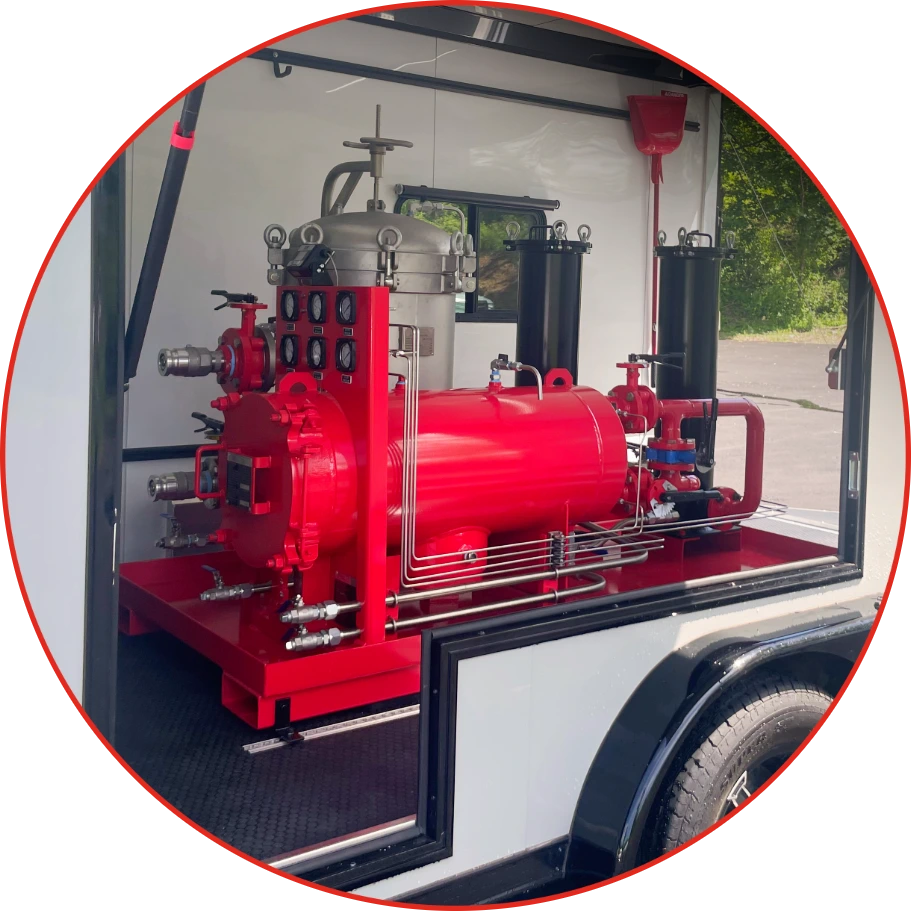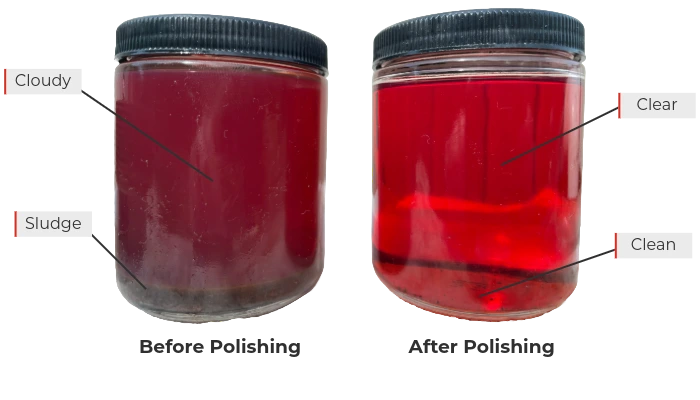Diesel Fuel Polishing & Tank Cleaning Services
Protect your fuel. Protect your equipment. Nationwide service for critical facilities.

Diesel Fuel Polishing at Critical Facilities
In mission-critical facilities like hospitals, data centers, and military bases, reliable backup power is essential. Diesel fuel powers emergency generators so that these facilities can continue operating during power outages. But, without proper maintenance, stored diesel fuel can become contaminated, risking system failures when they are needed most.
PFP makes maintaining diesel fuel for essential facilities easy. Our highly-skilled technicians will arrive to your facility with all of the equipment necessary for performing a full-service diesel fuel polishing and tank cleaning job.
Contact us today to learn how PFP’s mobile fuel polishing solutions can save you time, reduce fuel waste, and keep your systems running at peak performance.
Fuel Tank Cleaning Services
Diesel storage tanks are often out of sight and out of mind — until contamination turns into a costly problem. Over time, water, sediment, and other harmful contaminants collect at the bottom of tanks, creating sludge that degrades fuel quality and threatens the reliability of your equipment & backup power systems.
Our professional tank cleaning services tackle this hidden risk head-on. We use proven methods to safely remove all forms of contamination, restoring your tanks to optimal condition. When combined with diesel fuel polishing, you’re guaranteed clean fuel from the tank floor all the way to your equipment.
Meet ASTM D975 fuel specs, protect your equipment, and rest easy knowing your diesel is ready for use — no surprises.
See the Difference. Keep your diesel clean.
The difference is clear — literally. Untreated diesel fuel turns dark and cloudy when loaded with contaminants that can shut down your equipment and backup power systems.
Our before & after samples demonstrate just how much you stand to gain from routine fuel maintenance services. Clean, polished fuel doesn’t just look better – it protects your equipment and keeps you compliant.
One call keeps your diesel fuel clean, your tanks protected, and your mind at peace.
Download our Fuel Polishing & Tank Cleaning service brochure!


